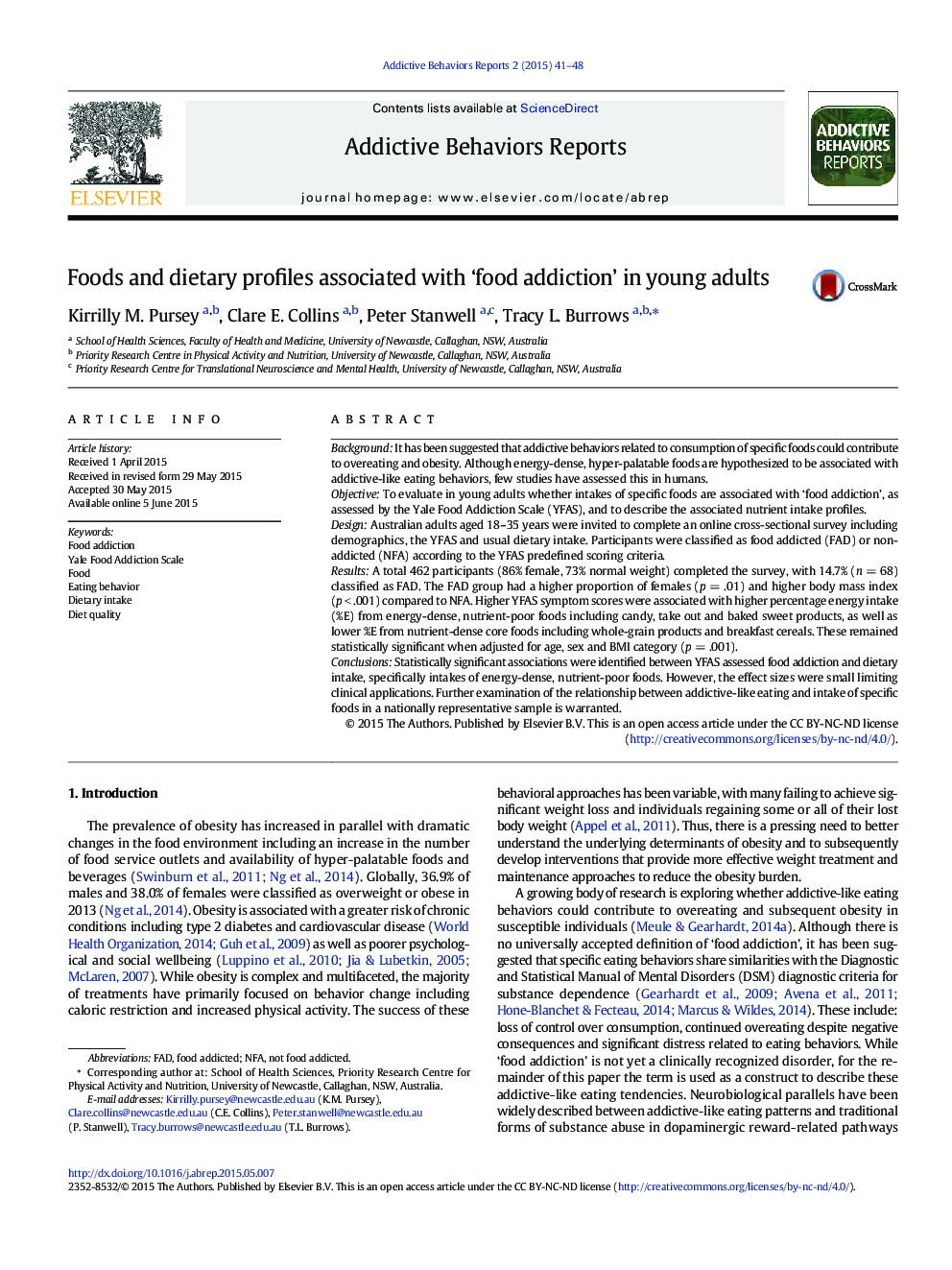| کد مقاله | کد نشریه | سال انتشار | مقاله انگلیسی | نسخه تمام متن |
|---|---|---|---|---|
| 900746 | 1472541 | 2015 | 8 صفحه PDF | دانلود رایگان |
• 14.7% participants met the YFAS predefined criteria for food addiction.
• Those classified as food addicted had a significantly higher body mass index.
• Higher symptom scores related to higher intakes of energy-dense nutrient-poor foods
• Lower odds of YFAS assessed food addiction with higher intakes of whole-grains.
• Higher odds of YFAS assessed food addiction with higher intakes of dietary fat.
ABSTRACTBackgroundIt has been suggested that addictive behaviors related to consumption of specific foods could contribute to overeating and obesity. Although energy-dense, hyper-palatable foods are hypothesized to be associated with addictive-like eating behaviors, few studies have assessed this in humans.ObjectiveTo evaluate in young adults whether intakes of specific foods are associated with ‘food addiction’, as assessed by the Yale Food Addiction Scale (YFAS), and to describe the associated nutrient intake profiles.DesignAustralian adults aged 18–35 years were invited to complete an online cross-sectional survey including demographics, the YFAS and usual dietary intake. Participants were classified as food addicted (FAD) or non-addicted (NFA) according to the YFAS predefined scoring criteria.ResultsA total 462 participants (86% female, 73% normal weight) completed the survey, with 14.7% (n = 68) classified as FAD. The FAD group had a higher proportion of females (p = .01) and higher body mass index (p < .001) compared to NFA. Higher YFAS symptom scores were associated with higher percentage energy intake (%E) from energy-dense, nutrient-poor foods including candy, take out and baked sweet products, as well as lower %E from nutrient-dense core foods including whole-grain products and breakfast cereals. These remained statistically significant when adjusted for age, sex and BMI category (p = .001).ConclusionsStatistically significant associations were identified between YFAS assessed food addiction and dietary intake, specifically intakes of energy-dense, nutrient-poor foods. However, the effect sizes were small limiting clinical applications. Further examination of the relationship between addictive-like eating and intake of specific foods in a nationally representative sample is warranted.
Journal: Addictive Behaviors Reports - Volume 2, December 2015, Pages 41–48
